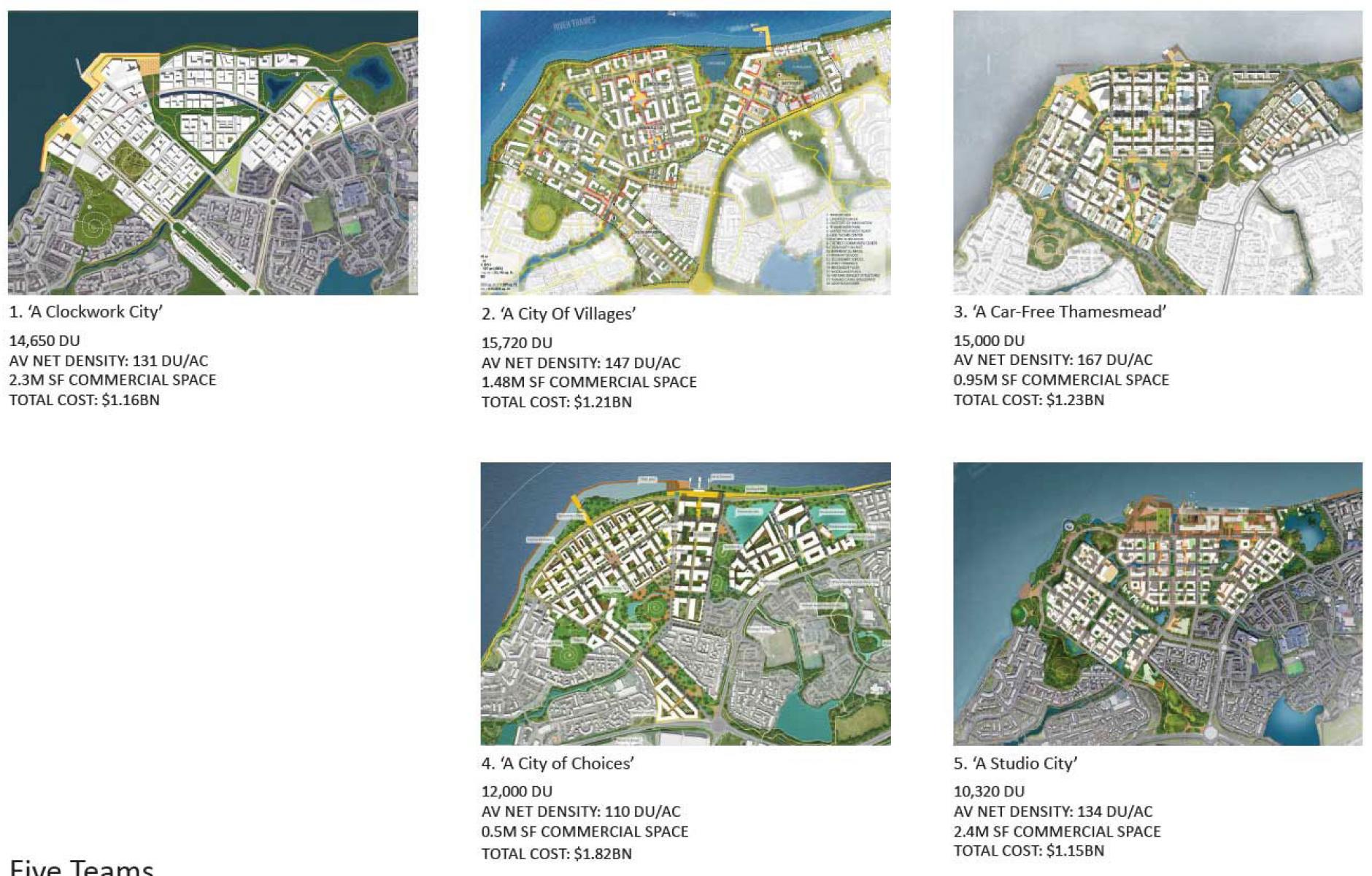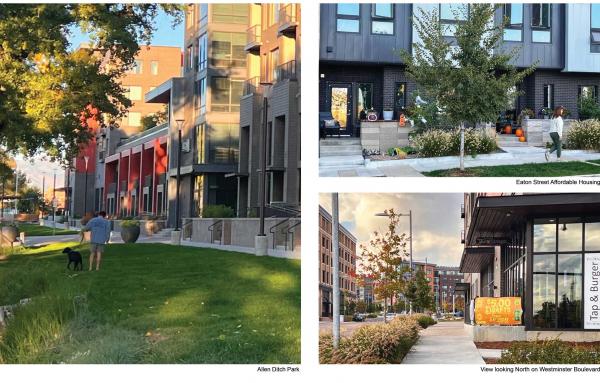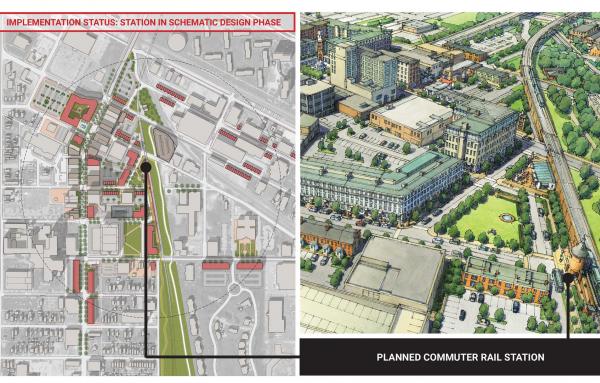
A 15-minute city for southeast London
Like the US, Britain is experiencing a widespread housing affordability shortage, especially around London in the southeast of the UK. Opportunity areas for new housing in that region are critical—including a flat, 300-acre former military site on the Thames estuary where 12,000 to 15,000 living spaces could be built. The program calls for half of those units in London’s Thamesmead district, connected by a recent transit line to the central city, to be affordable.
Teams of UC Berkeley graduate students in real estate and urban design recently explored how the site, an expansion of the 1960s development district of Thamesmead, could become the core of a “15-minute city” serving new and existing residents with access to transit hubs. The 20th Century Thamesmead was the setting for the famous dystopian film, “A Clockwork Orange”—and that association highlights the need for more livable urbanism for the residents, who are largely migrants from Britain’s former colonies and pre-Brexit citizens from Eastern Europe.
The Thamesmead Expansion is to be the latest phase in a linear city that has developed eastwards along the Thames from Canary Wharf, the Greenwich Peninsula, the royal docks, and the Woolrich Arsenal.
Five teams focused on emerging ideas for their master plans. These included making Thamesmead a ‘car-free district;’ exploring tidal power for energy; using London's emerging movie industry as a site for new studios; and focusing on health care and the large number of health care providers who live in the surrounding districts.

The various plans each accommodate at least 12,000 housing units—including townhouses, flats, studio apartments, single-room occupancy units, and live-works. Students were required to employ the tools of sustainable urbanism—such as a connected network of streets, blocks, and public spaces, including a variety of parks and a waterfront esplanade. The project addresses London's 2040 targets for sustainability by reducing car travel and creating walkable neighborhoods.
The CNU Charter Awards jury appreciated the thoroughness of the alternatives, as well as the cross-disciplinary nature of the teams—bringing together design and real estate development expertise. “We commend them for a meaningful addition in a country with a serious housing shortage,” the jury said. The jury also mentioned the importance of considering flood mitigation on the near-sea-level property.

The merging of design and development disciplines fostered more realistic plans, which were presented to master planners, developers, and housing agencies in London. The proposals range from 110 to 167 units per acre, with substantial commercial space—a density commensurate with the transit access and economic importance of the site. The total value of the planned development is estimated at $1.2 billion to $1.8 billion.
"We were all very impressed by the professionalism and clear-minded, interdisciplinary approach of each student group,” notes Jonathan Rose of Prior and Partners, master planners for the development. “It was a great experience for us to be able to share our contribution to the Thamesmead story and to hear in return all the teams' creative response.”

The teams learned two big lessons: One is the value of multidisciplinary design in the academic context, so that students negotiate between needs of urban design and development. “The other was the ability for the studio to engage with the real clients, their developers, and master planners, and to visit the site at a time when their designs were sufficiently advanced to receive feedback.”
View Thamesmead Expansion's Charter Awards ceremony video here.
Thamesmead Expansion
- Aditi Subramanian, Diljot Kaur, Katie Knipfing, Samantha Serafica, Jessie DiGiovanni, UC Berkeley College of Environmental Design, “A Clockwork City” planning and design team
- Diksha Singh, James Crampton, Sachin Yadev, Molly Harris, Lauren Willey, UC Berkeley College of Environmental Design, “A City of Villages” planning and design team
- Claire Mardian, Daoming Lin, Lauren Czorniak, UC Berkeley College of Environmental Design, “A Car-Free Thamesmead” planning and design team
- Vedanti Shailesh Agarwal, Helen Bourdeaux, Bhavesh Shahani, Mausam Jamwal, Eugene Lau, UC Berkeley College of Environmental Design, “A City of Choices” planning and design team
- Wenzheng Fan, Victor Xu, Krati Jain, Pawida Baulert, UC Berkeley College of Environmental Design, “Studio City” planning and design team
- John Ellis, Professor, UC Berkeley College of Environmental Design
2023 CNU Charter Awards Jury
- Megan O’Hara (chair), Principal, Urban Design Associates in Pittsburgh, Pennsylvania
- Andre Brumfield, Principal and Global Director for Cities and Urban Design at Gensler in Chicago, Illinois
- Krupali Uplekar Krusche, Associate Professor, University of Notre Dame School of Architecture in South Bend, Indiana
- Jennifer Settle, urban designer, architect, and Senior Associate with Opticos Design in Chicago, Illinois
- Patrick Siegman, transportation planner, economist, and Principal of Siegman & Associates in San Francisco, California








